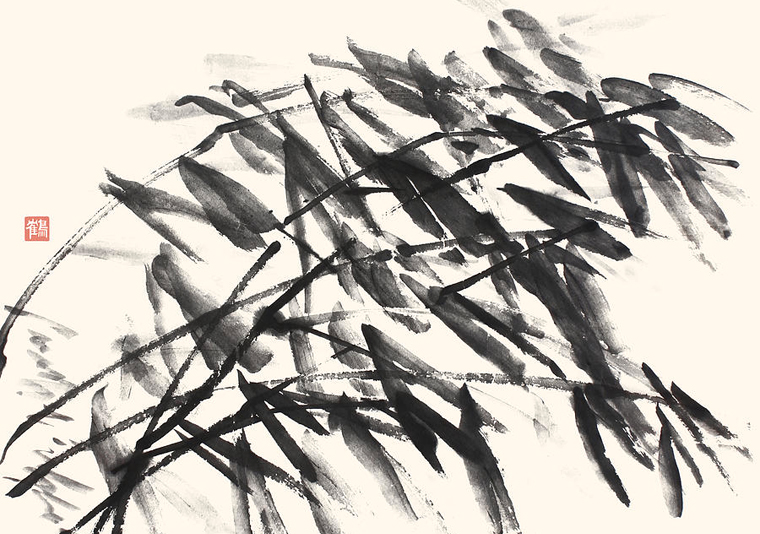
A strong wind
Bamboo deeply bends and sways.
In shifting shadows
A robin sits,
Undisturbed.
The blustery storm of world events – violence in the Middle East, political conflict, cultural change, and so on – often feels like too much. Admittedly, I ain’t no robin. I do, however, try to calm myself through observation and reflection, learning from nature and watching how my own mind works.
As a creature of nature, my urge to live is inborn and my responses to the world are a combination of reflex and reflection. Reflexes are those responses that occur without the mediation of mind, purely biological and biochemical responses associated with a survival mechanism that predates humanity altogether. We observe such reflex actions in animals as small as one cell in size, which not only react reflexively to external stimuli but also form memories, despite any evidence of having what we call a mind or a brain. Such is the power of life’s urge to live.
Accordingly, my reflexes respond when I inadvertently step on a pebble with my bare foot; I don’t have to think about it. And when I hear of some terrible event, some painful news-pebble about needless death or mayhem, my natural reflex kicks in as well. Unlike a physical stimulus such as a pebble that generates physical pain, however, my reflex to terrible news is mental. I recoil emotionally, and my body biochemically reacts as if it has been injured; adrenalin, cortisol and other stress hormones get distributed throughout my system. I get disturbed, tense, angry or depressed.
This is when the opportunity for observation kicks in, my changed emotional state taken as a signal rather than an imperative to act. Biochemically, my body has been primed for action, its natural reflex response to danger or threat; but observation and reflection offers the opportunity to intercede in what otherwise is reflexive. The complexities of mind can create suffering but can also calm suffering; it’s about how we pay attention.
Shifting shadows caused by the wind of world events constantly swirl surround us, and in our highly commercialized world capturing our attention means creating the chance to create fear and make money. Now, more than ever, competition for our attention is a virtual force of nature, a strong wind trying to bend us to its economic will. This is the type of situation in which bamboo can teach us about firmness and flexibility, the ability to bend and not break due to rigidity. In this case, rigidity is habitual reflex, which is different than firmness. Firmness emerges from self-understanding and self-reflection, rootedness in we might call the principle of self-knowledge. The principle of self-knowledge keeps us from being blown over, just as its roots firmly anchor bamboo, even in the strongest of storms.
It’s not possible to eliminate reflexes, nor should we; they keep us alive. Yet, we no longer live in only the natural world where falling rocks, crashing waves, flooding creeks, or hungry predators threaten. Our world is also a world created by human invention and accompanied by its own risks and dangers; observing our reflex responses and becoming familiar with ourselves and our reactions is a key to empowering emotional flexibility and wellbeing.
So it is I observe and, beginner that I am, try to learn the lessons of bamboo and robin both, how to flexibly bend and sway and as events swirl and shift, how to sit undisturbed.